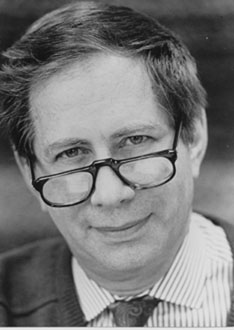PROVIDENCE, R.I. [Brown University] — Attorney General Eric Holder’s speech to the American Bar Association Aug. 12 in San Francisco were words of encouragement for three Brown University professors who have long studied the nation’s drug enforcement policies. The policies, they say, have resulted in too many people, particularly minorities, ending up in jail for too long. Below are comments from Professors Glenn Loury, Dr. Josiah Rich and Dr. David Lewis. Loury, an economist and Merton Stoltz Professor of the Social Sciences, and Rich, a professor of medicine and Director of the Center for Prisoner Health and Human Rights, currently serve together on a National Academy of Sciences panel, studying incarceration in the United States. Dr. Lewis founded Brown’s Center for Alcohol and Addiction Studies and is on the board of directors of Physicians and Lawyers for National Drug Policy.

Professors Rich and Loury
We commend the Obama Administration and Attorney General Eric Holder for taking a big step in the right direction towards changing the policies that have led to such disturbingly high rates of incarceration in the United States. The rise in U.S. incarceration rates over the past three decades is without historical precedent in this country, and exceeds anything to be observed elsewhere in the world. This overuse of imprisonment has disproportionately impacted people of color. This growth of imprisonment in the U.S. is closely connected to the “war on drugs,” with substance use, addiction and mental illness as contributing root causes.
As the Attorney General stated, it is important to continually ask ourselves, as a society, ”what are the goals of incarceration and are we meeting those goals?” The goal should include public safety, public health and an improved democracy, and monitoring of those outcomes with policy changes. It is becoming clear that these goals are not being met by the current high rate of incarceration. Some of us are persuaded that we are even worsening all three with our current policies. That is why this change in federal policies is so warmly welcome.
However, only one in ten people in prison in this country are held in the federal penitentiaries. It will be important for the states and local governments to follow the federal government’s lead if we are to have a substantial improvement.

Professor Lewis
The Justice Department will no longer charge low-level drug offenders with crimes that would subject them to mandatory minimum sentences. This is a step in the right direction.
Mandatory sentences for drug offenses are unfair, discriminatory, and costly. Several Federal judges have recognized the unfairness and have refused to enforce them or have made impassioned public statements of regret when they have had to. Mandatory sentences for drugs are discriminatory because so many incarcerated drug offenders are people of color although the use of drugs in the white population far exceeds that of any other group.
In The New Jim Crow: Mass Incarceration in the Age of Colorblindness, Michelle Alexander dramatizes the magnitude of the discrimination with the data that more African-American adults are under correctional supervision today than were enslaved in 1850, ten years before the Civil War began.
Mandatory sentences are costly. Drug offenders now account for nearly half of all inmates in the country and our prisons are currently 40 percent over capacity. Incarceration costs between $30,000 and $50,000 per year per inmate, while drug treatment can be funded by less than half that amount. The Center for Economic and Policy Research estimates that if we imprisoned only half the non-violent drug offenders that we do today, we would be able to save $16.7 billion every year.
The Justice Department has made a good start.
